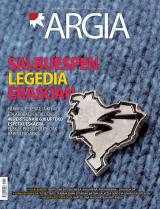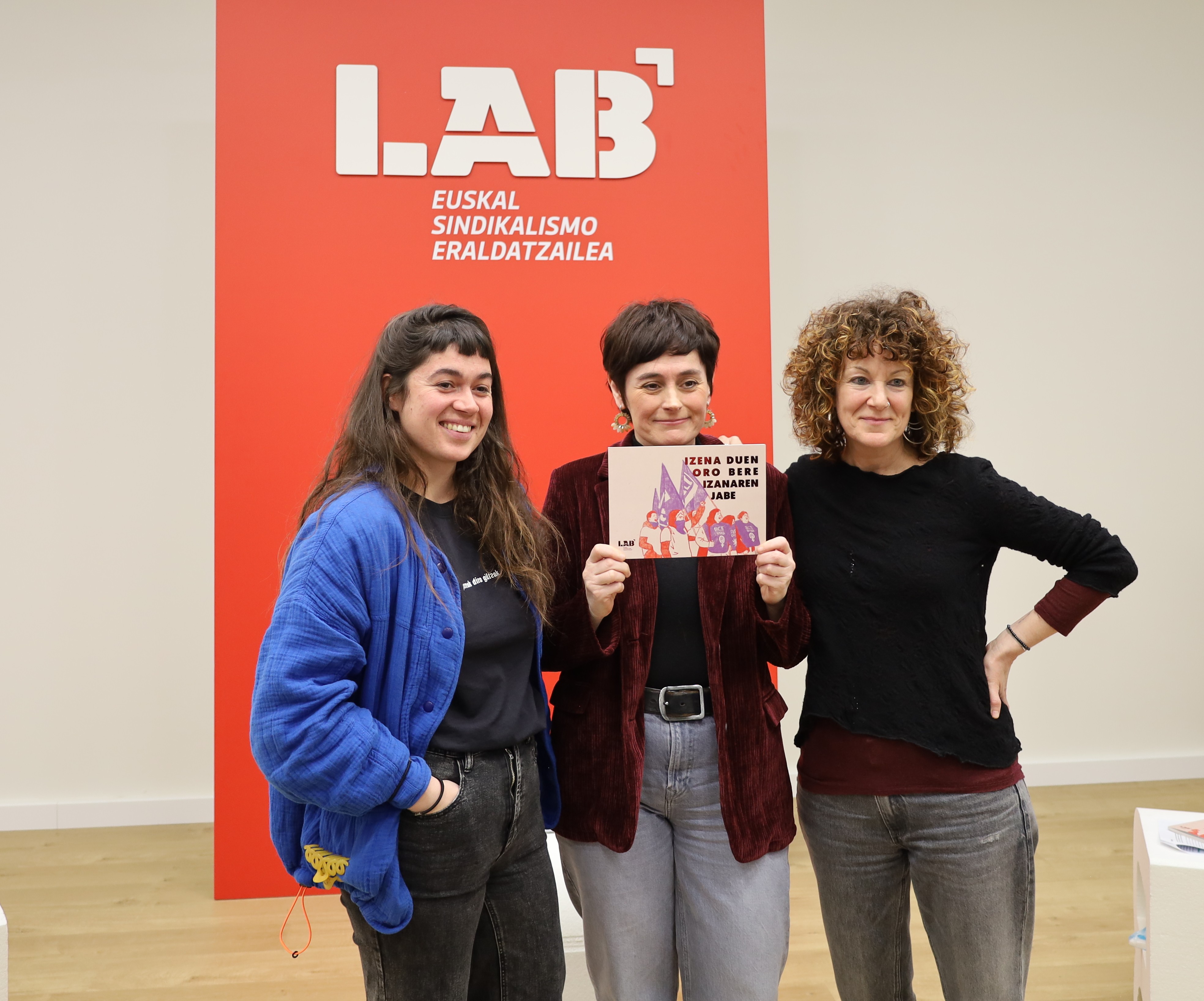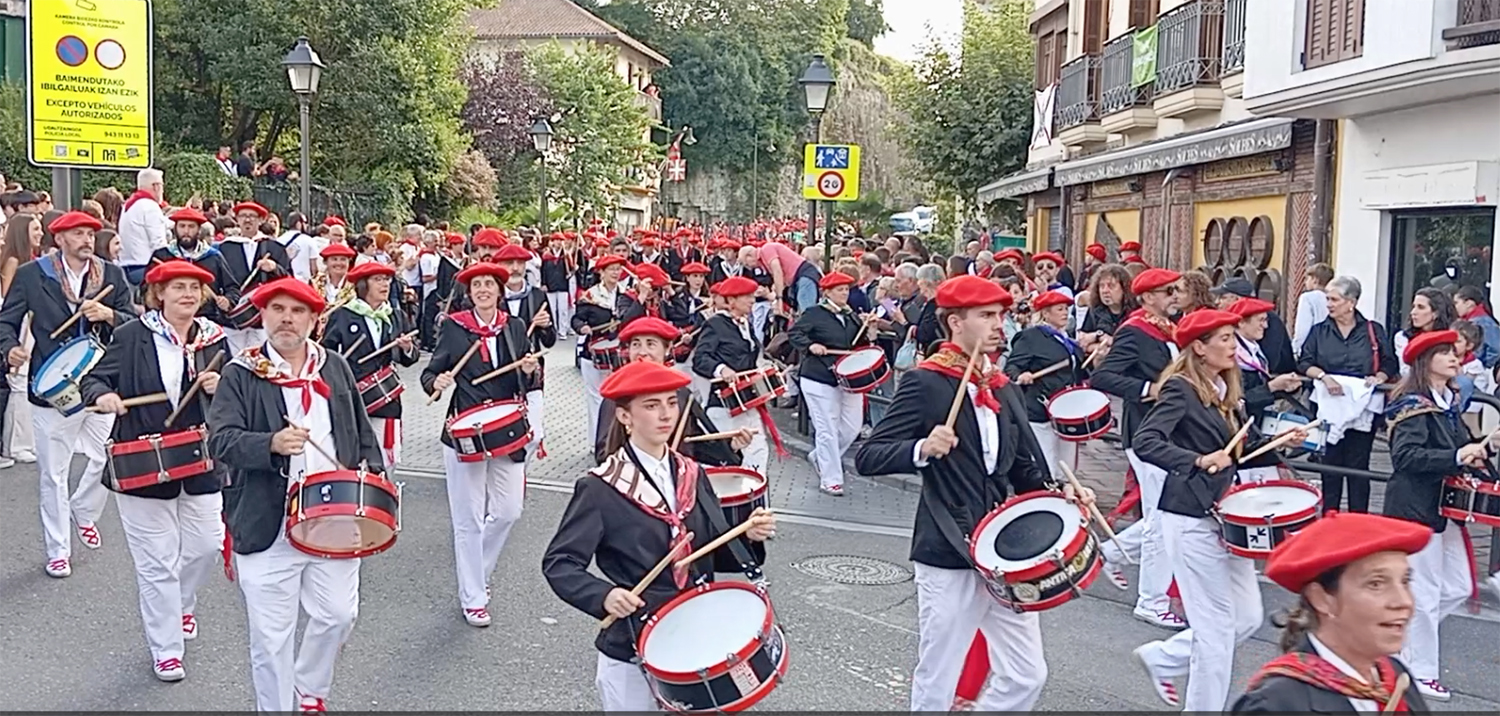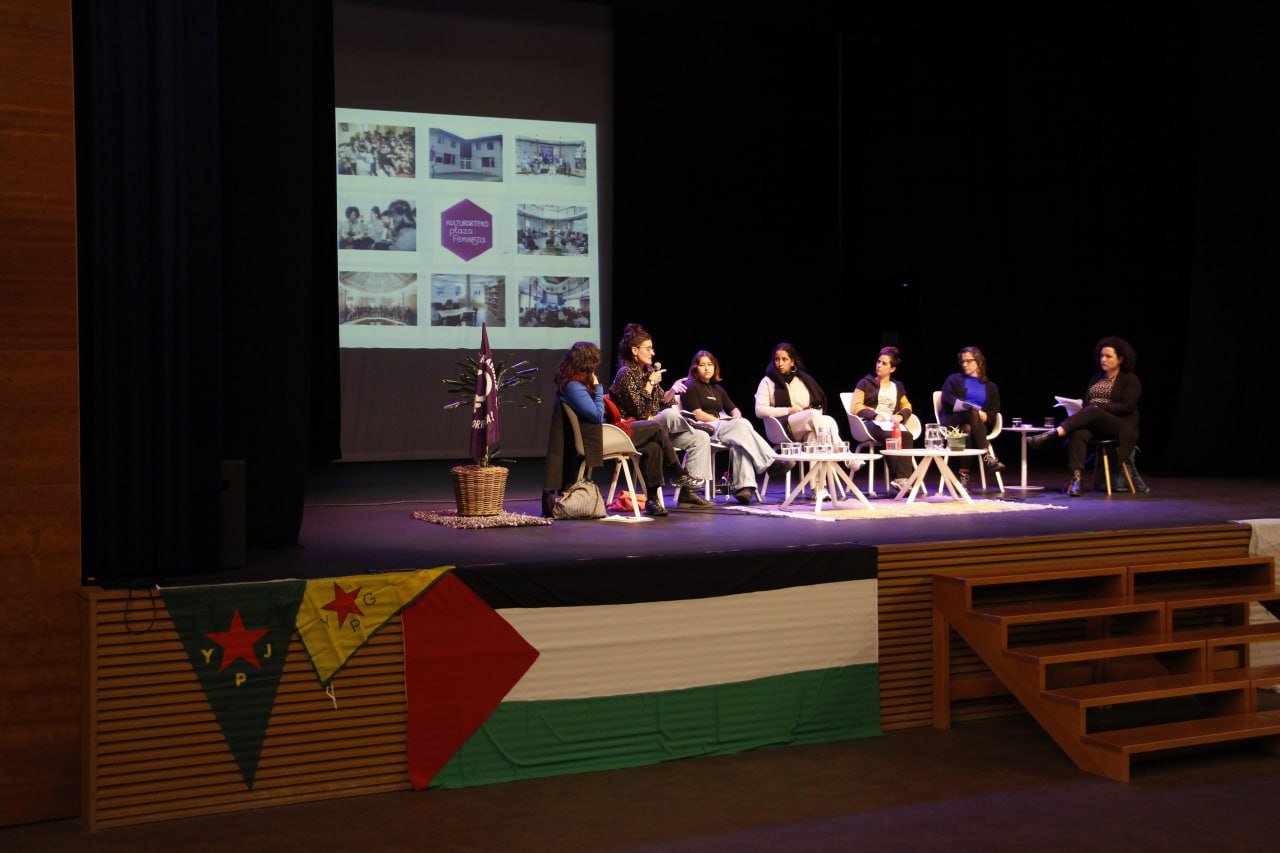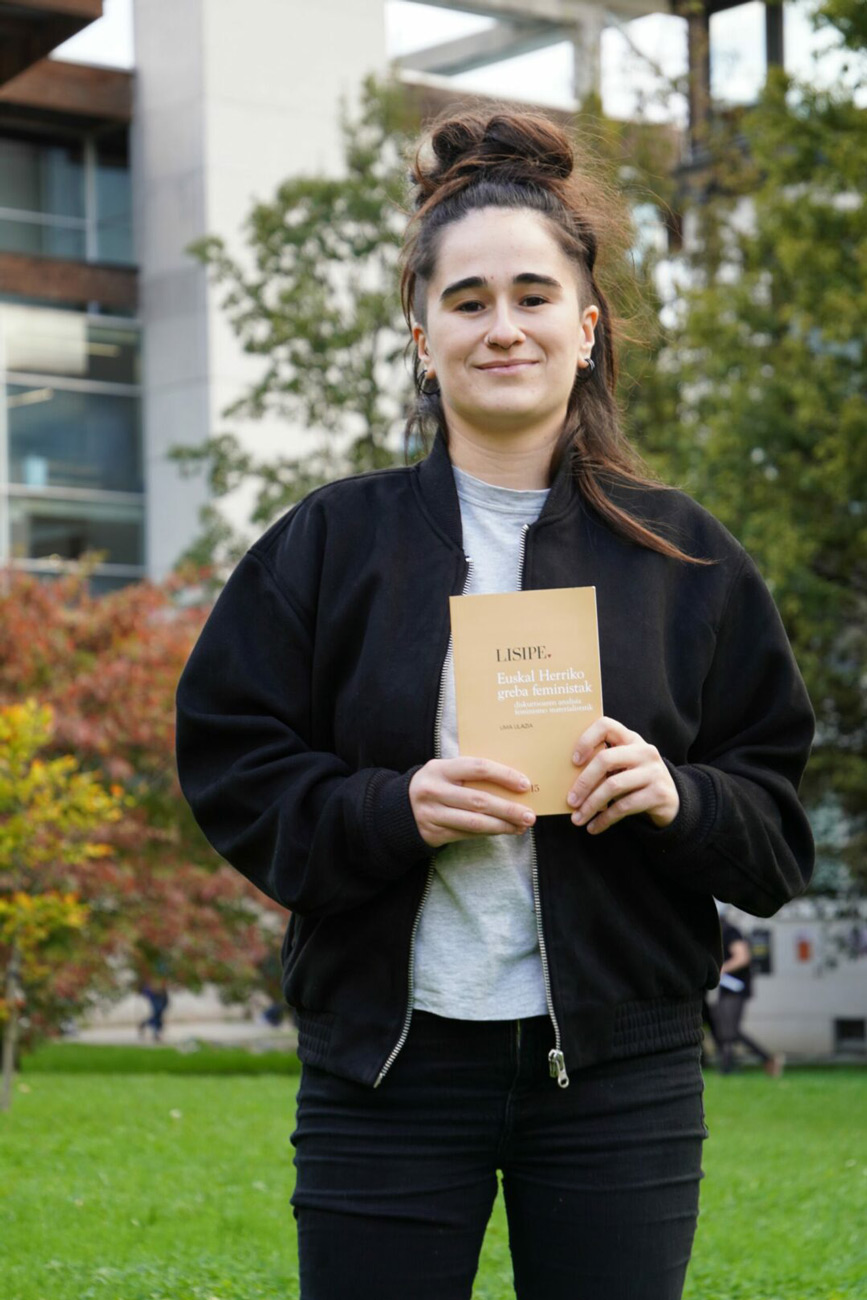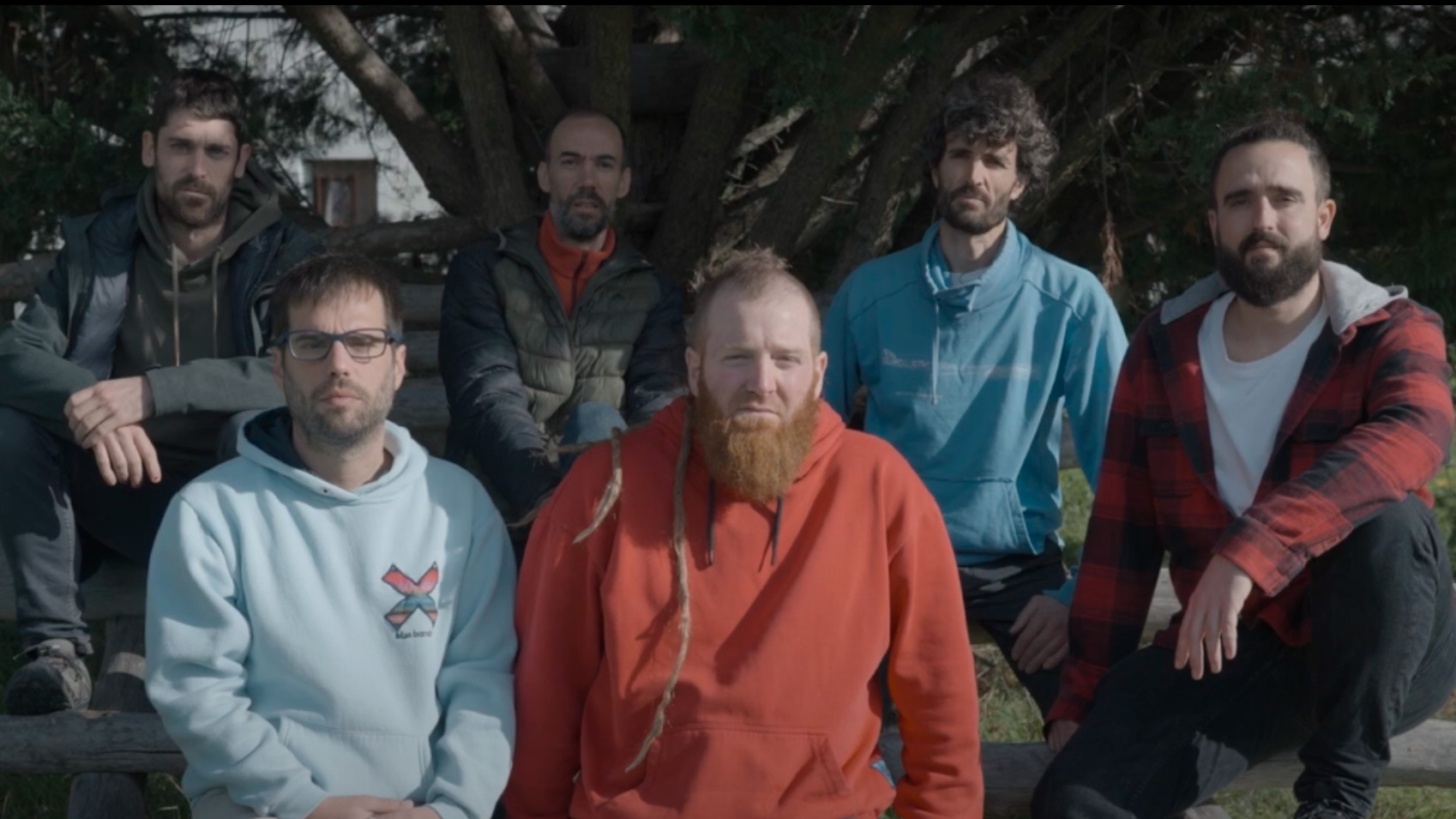"ETB presenters are dressed as if they were at a wedding"
- Inma Erreak is passionate about the world of ideas and that's why she's a journalist, a translator and a writer. The main job he now has is to activate the Basque from his new office of the Euskera Service of the City of Pamplona.
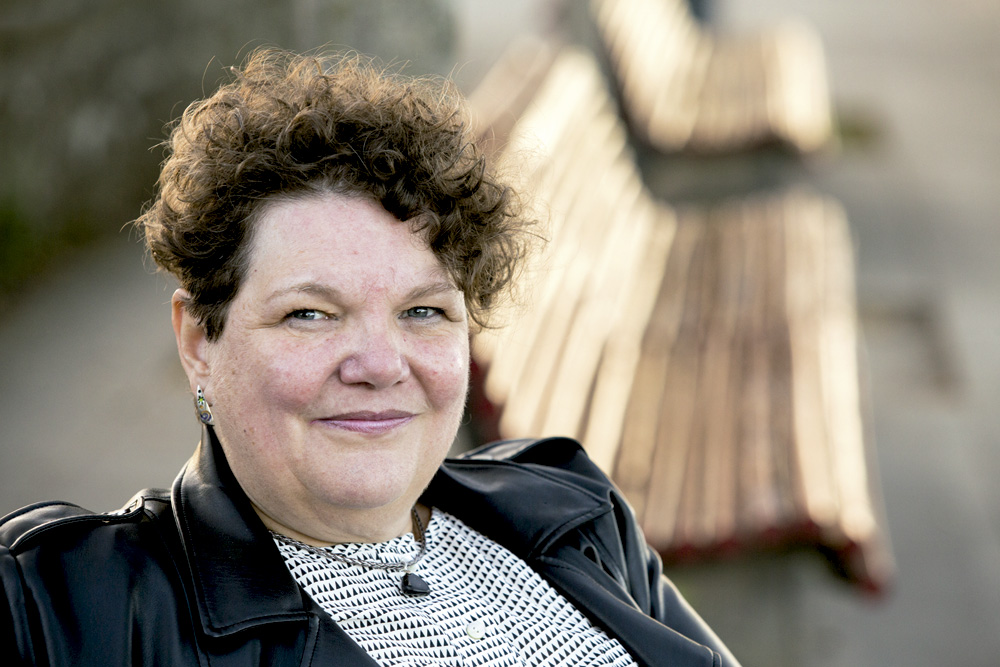
ETBn lan egin zuen kazetari hamaika urtez, eta 1997an Iruñeko Udaleko itzultzaile postua lortu zuen. Joan den martxotik, Iruñeko Udaleko Euskara zerbitzuburua da. Literatura eta harrikoa saiakera feminista argitaratu zuen Pamiela argitaletxearekin, 2003an. Itzultzaile gisa, lau saiakera (Haserretu zaitezte!, Ekonomialari harrituen manifestua, Ez duzu deus ikusi Fukushiman eta Filosofia alabari azaldua) eta hainbat ipuin euskaratu ditu.
Where does the surname Cleix come from?
One of his ancestors, apparently, had arrived from Liege (Belgium) and settled in Aldude. The original surname, however, was Glaize. Then Birrapitxi's father, Eñaut, came to this part of the Pyrenees as a pastor and lived on a farm built by him until the family moved to Zilbeti.
Did you learn Basque at home?
When I was a child, I lived in the village, until I came to Pamplona to study. The mother understood the Basque, but she lost it. The uncles did, they went to America, where they kept the Basque. He was from Father Mezkiritz, also from Basque. But we were not taught. I started learning Euskera when I was in the first year of college, and then I realized that I had an echo and melody of the language, because the scarves were speaking together in Euskera, and because many of the words and expressions we used in Spanish had been translated directly from Euskera. That's why I've been told that I was very weird when I came to Pamplona at the age of 8 to the nuns.
When did vasquism emerge?
I studied high school at the nuns, and then I did it at the Zen UBI Institute, and there I met a number of colleagues who were moving in the academic environment that was in Pamplona. So I started thinking about it, and I decided I had to learn Basque. The first year of college, I enrolled there, in the classes taught by José Basterretxea Oskillaso de Gernika. The next year, I went to Euskaltegi Arturo Kanpion and learned for four years, doing journalism. To learn Euskera, it was much more fun than journalism. Learning Euskera clarified many things that I didn't understand about myself. I realized the presence of the two languages I had inside me, and I learned how to differentiate them.
“The ideas that limit what you have
to learn from being a woman and what you don’t have, or the kind of literature you have to do, work to master creativity.”
When you were young you also found the feminism you felt in the womb.
It's true. When I was 15, I found a lot of stuff. So I became a citizen. Before that I lived in the city during the week, but on the weekends I returned to the town and there I was happy. At the beginning of adolescence, I began to get to know another world. There were hard strikes, everything was very complex and in that environment I knew the political vision of the Basque, and in the same way, feminism. I thought it was unfair to have to do some things differently because I was a little girl. I didn't accept many things. Many of my hobbies weren't quite seen in a girl, like spending a lot of time reading in my room, or writing. It was like I was doing something suspicious. Another example: in the village it was very normal for boys and girls to play together, also in football. At school, nuns forbade us to play football thinking it wasn't female. So we jumped up and we started playing rugby. We started kicking between us and the nuns got scared and they gave us permission to continue playing football.
In the essay Literature eta harrikoa you wrote about literature and feminism.
I always liked the essay. In this kind of mechanical work, my ideas multiply, and that's how I started writing the book. I wanted to take out some things that I had inside. It's a reflection on the things I've lived because I was born a woman. I'm no less an intellectual of feminism. I had read a lot, and so I found myself, for example, with Virginia Wolf. I found a room doing the work of oneself, reflecting many things I thought.

What are the ideas you wanted to highlight?
Women and men, we all have the right to develop what belongs to us, whether or not they agree with hegemonic gender norms. These standards are also variable over time.
I came across a central idea: that creating is something you have to do freely for yourself, without letting others say what you are or who you are. In these ideas I found the reasons for my particular uprisings. Ideas that limit what you have to learn and what you don't have, or what you have to do by birth as a woman, work to master creativity.
Can we talk about female literature and literature for women?
They're different things. Literature belongs to everyone and to everyone. It gives the impression that it is only a matter of gender, of women. In the literature I do not want to distinguish between men and women, but, at the same time, the literature written by conscious women attracts me, and I feel compelled to push it, to promote equality. I believe that there is a need for positive exclusion, but it is in fact a contradiction.
There are studies about this idea, and they say that women use more metaphors like water. I don't know. Maybe we use things that have to do with our experiences, but at the same time it's amazing to see how natural men are talking about experiences that don't live, like childbirth, for example. In addition, they have created stereotypes and we women have to swallow... That's why it's hard for women to write about what we want, as we want: if I want to tell something from the point of view of my experience, and if the ways of telling that there is for it are created by men ...
On the other hand, it has been said that women are not able to develop abstract thinking. If you're told that, over and over again, and you like the world of ideas being a woman, you might think you're a strange woman. I like essay and poetry as well. Labels are very easy to put on and harm people a lot. I recognise that that is why I have suffered. In adolescence, we all feel strange. In my case, the typical tools of girls to deal with this rarity, elegance, makeup and going to nightclubs to tie, didn't work. I love dancing, but when I was young, like in a cattle fair, I felt like this in the holiday halls, and I don't know if something like this happens today.
“In Pamplona, some have made great efforts not to see Basque, and that is why we are worse than in many smaller towns”
We haven't made much progress on that, right?
I suspect not. And where does that come from? We don't want to see it, but that's what's happening because society itself and its structures maintain that mindset. I dislike that. We are agitated by machista violence, but we do nothing to interrupt it. Today, as before, if a girl says no to a man, she has to give him explanations. Many men don't accept no. It's impressive and it hasn't changed because the upper structures continue to feed it. Patriarchy, capitalism -- you call it as you like, but it's still there, and that doesn't suit the most powerful.
Not imitating what the other genre does is one of the keys to feminism?
Yes, but it's hard. Virinie Despentes proposes, for example, the opposite: that women be made as men, otherwise they will not do us any cases. For example, do not give up the ways men use to defend themselves. But working from a conscious feminism. On the other hand, there are women who behave like men and who are not afraid of harming other women, more demanding of women than men. They despise women who supposedly do not reach their level. That is not what Despentes proposes. It's outrageous to some, but it's very interesting what this writer tells us. The King Kong theory book is amazing [brought to the Basque Country Itziar Diez de Ultzurrun], and I recommend it to everyone, and especially to men. It may seem like provocation, but it's not that. Despentes tells her story: rape, experiences in prostitution…
Would you go back to work as a journalist?
I wouldn't go back to the kind of journalism I was doing in Euskal Telebista. It was a good experience, but I also had bad times. So he started to change journalism. The show began to gain more and more importance and so it is.
I chose to study journalism because I liked writing, but there are many things I can't stand, from a sexist point of view, for example. Presenters are dressed like they go to a wedding. In winter, with stylish strapless dresses, amazing heels -- and that's a model for society. This does not make women more powerful, but weaker. The message is that the image is very important, perhaps the most important. On French television it is not so extremist, for example, suits are simpler, and in England the same thing. ETB follows the pattern of other state television channels and I do not like it. Lately I see TV3. Among conventional televisions, it seems to me to be the most dignified.

By vocation as a translator?
I like to give the best I can in a language that has been created in another language. Transfer of ideas from one language to another. I really like to play with languages.
Of course, the fact that you were born and raised in a multilingual environment would influence that. In the town, in addition to the presence of the Basque and the Spanish, there was also the influence of French, and since I was little I have felt a great curiosity about new things. They often came to our house “Americans,” with English expressions in their mouths. My father had been a pastor in Idaho, and my maternal uncles were in California.
Stéphane in Hessel You become angry! What importance has the translation of the work had for you?
That work, and the other two that were published that same year, in 2011, were the Economist Manifesto surprised and the commissions of the editorial Denonartean Fukushiman, recently released at the time of the publication Ez ikusi ikusi. We were very alive, because they wanted to publish Hessel's work in multiple languages at once. The economists and the Fukushima were also very quick, constrained by reality, crisis and nuclear accidents. In 2014, we did a fourth. Philosophy explained to her daughter. The job was quieter.
“I felt like I was at the cattle fair in the dance halls, and I don’t know if something similar happens today.”
What are the main challenges of the renewed Euskera Service?
To begin with, it must be said that it is not true that nothing has been done in the City of Pamplona in these years. But the path of normalization was greatly reduced in the time that UPN dedicated to the government, and the Basque country worked mainly in the cultural sphere. Many things were frozen in 1999. The Basque Ordinance was approved in 1997. Although some things were done, many others were kept in drawers.
The same ordinance was reduced three times, until in 2012 the fourth modification was carried out, in this case, to slightly expand its capacity: a proposal was approved to make a more legible typography the one used in Euskera in labels and texts in Euskera.
Now the government team of the City Hall wants to recover the spirit of that initial ordinance, and that is why a lot has to be put in place. To this end, the Euskera Service has been restructured, with the incorporation of translators and the hiring of a new Euskera technician.
However, it is difficult to reach everything in a short time and with the resources we have. I do not know whether we have overcome the economic crisis, but we are still suffering many of its consequences.
What is the most urgent thing?
Many things: we need a plan of use for the interior and an Euskera plan for the city. We have to specify what we can do with the resources we have, the service to citizenship emateko.Gauza is a lot to do. We have to take the steps that have already been taken in other smaller localities in the Region of Pamplona. Some have made great efforts not to see Basque in Pamplona, and that is why we are worse than in many smaller towns. We have now started working with the other Basque services to create synergies. We are in Pamplona, in the Region of Pamplona, and at the same time our city is the Navarre capital, and we must not lose sight of that.
This wedge that the announcement on the radio Euskadi to replace the bathtub with a shower encourages the commencement of the works in the bathroom of the house. A simple work, a small investiture and a great change are announced. There has been a shift in toilet trends and a... [+]
Zalantza asko izan ditut, meloia ireki ala ez. Ausartuko naiz, zer demontre! Aspaldian buruan dudan gogoeta jarri nahi dut mahai gainean: ez da justua erditu den emakumearen eta beste gurasoaren baimen-iraupena bera izatea. Hobeto esanda, baimen-denbora bera izanda ere, ez... [+]
Goldatz talde feministak antolatua, ortziralean, urtarrilaren 3an, Jantzari dokumentala proiektatuko dute Beralandetan (17:30ean) eta biharamunean, urtarrilaren 4an, Berako bestetako tradizioak aztergai izanen dituzte Maggie Bullen antropologoarekin leku berean (10:30).
Ander Magallon, Mikel Irure eta Xabier Jauregi Metropoli Forala saioan egon dira maskulinitate berrien inguruan mintzatzen.









